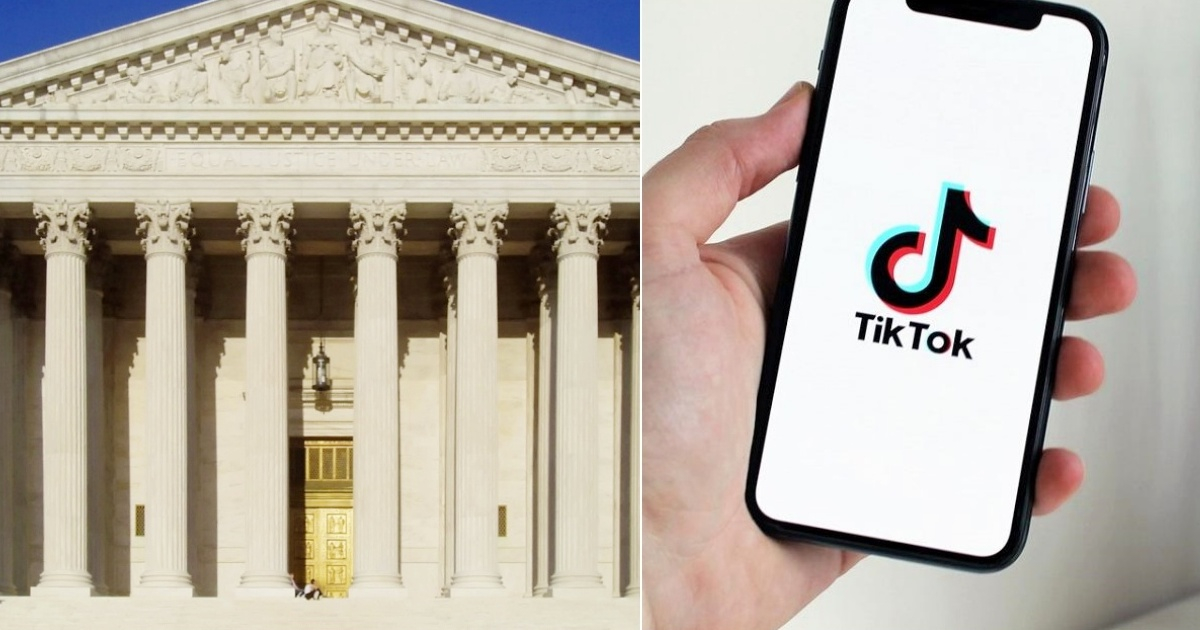
Related videos:
The Supreme Court of the United States issued a ruling on Friday that supports a law that could force TikTok to suspend its operations in the country starting January 19.
The social network, owned by the Chinese company ByteDance, faces the possibility of an outright ban if it does not finalize its separation from its parent company before the deadline.
The ruling establishes that the 170 million TikTok users in the United States will be able to keep the application installed on their devices, but starting January 19, they will not be able to receive updates or download it again.
According to experts, this could eventually lead to the platform becoming non-operational.
The Supreme Court, with a conservative majority, unanimously rejected the arguments of TikTok, affirming the constitutionality of the law.
In its ruling, the Court held that “the risk to national security posed by TikTok's ties to China outweighs concerns about limiting the freedom of expression of the app or its users.”
The Biden Administration, along with the lawmakers who promoted the regulation, insists that the separation from ByteDance is essential to ensure the security of U.S. user data.
Political context: a presidential transition filled with tension
The future of TikTok in the United States now largely depends on the decisions of the elected president, Donald Trump, who will take office on January 20, one day after the ban goes into effect.
During his first term (2017-2021), Trump tried to ban TikTok for national security reasons, but his current stance appears to be more conciliatory.
In a recent post on his social media platform Truth Social, Trump claimed to have discussed the matter with Chinese President Xi Jinping.
The White House, led by outgoing President Joe Biden, has indicated that the implementation of the law will be left in Trump's hands.
However, time is of the essence, and TikTok may choose to proactively suspend its operations before the regulations come into effect.
During the arguments before the Supreme Court, the attorney for TikTok warned that the platform will “turn off” if it cannot continue operating in the country.
The origin of the veto: National security and tensions with China
The controversy surrounding TikTok originated in April 2024, when Congress passed a bipartisan law granting ByteDance a nine-month period to sell TikTok's operations in the United States to an investor not deemed a "foreign adversary."
The aim of this legislation was to protect national security amid concerns that the Chinese government could access the data of American users or influence public debate in the country.
The law states that if ByteDance did not finalize the sale before January 19, TikTok would be banned.
Despite political pressures, ByteDance has chosen to defend itself in court, arguing that a ban would violate the First Amendment of the United States Constitution, which protects freedom of speech.
A potential sale of TikTok to a U.S. buyer does not seem imminent.
Although the law allows for a 90-day pause in the restrictions if progress toward a sale is demonstrated, this remains uncertain. Attorney General Elizabeth Prelogar, who defended the law in the Supreme Court, indicated that it's not certain whether the prospect of a sale will halt the ban.
TikTok has repeatedly denied allegations that it may be used as a tool of the Chinese government. In a statement, the company argued that the law jeopardizes fair competition and technological innovation.
Trump and the Continuity of TikTok
The elected president Trump now faces a complex decision. On one hand, some prominent Republican senators are demanding stronger measures against ByteDance, while Trump seems inclined to seek a solution that allows the platform to continue, aware of its popularity among American users, including its 14.7 million followers on TikTok.
In a recent interview, Florida Congressman Mike Waltz, who will be the next National Security Advisor to the White House, stated that Trump is exploring options to ensure that TikTok can continue operating in the United States under secure conditions.
Filed under: